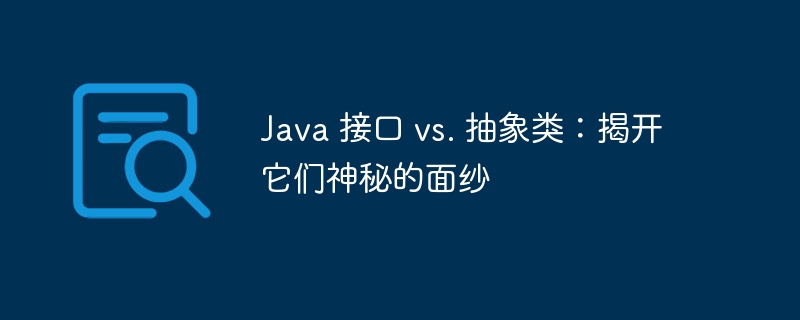

Java interface vs. abstract class has always been a hot topic among developers. These two concepts play an important role in Java programming, but many people are not clear about their differences. PHP editor Strawberry will unveil their mysteries for you, compare their features and usage scenarios in depth, and help you better understand and apply them in actual development.
interface
Definition and purpose:
Interfaces are completely abstract types that only declare method signatures without implementation code. They are used to define behavioral contracts that force classes that implement the interface to follow specific method signatures and return types.
feature:
Abstract class
Definition and purpose:
Abstract classes are partially abstract types that can contain abstract methods and concrete methods. They provide part of the implementation, and the specific implementation is the responsibility of subclasses.
feature:
Compare
Similarities:
difference:
Choose which type to use
The choice of using an interface or an abstract class depends on specific needs. The following are typical usages of the two types:
interface:
Abstract class:
Summarize
Interfaces and abstract classes both play an important role in Java Programming. Interfaces provide complete abstraction and enforce standardized contracts. Abstract classes, on the other hand, provide partial implementation and support inheritance and code reuse. Understanding the difference between these two types is critical to designing flexible, scalable, and maintainable code.
The above is the detailed content of Java Interfaces vs. Abstract Classes: Uncovering Their Mysteries. For more information, please follow other related articles on the PHP Chinese website!




